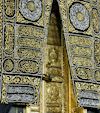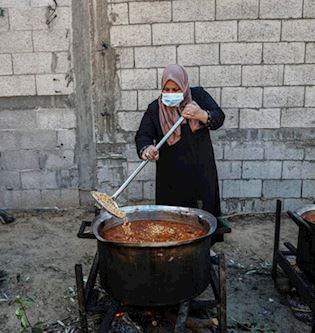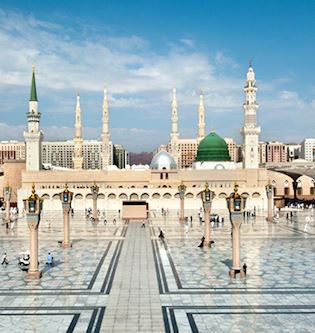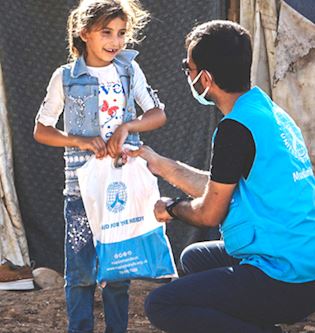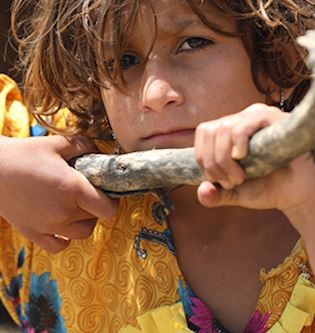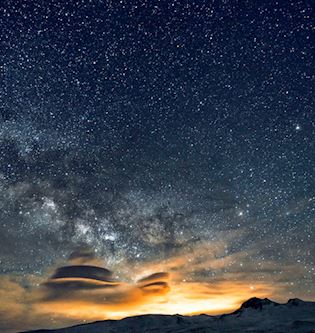Dhul-Hijjah: 5 Significant Events from Modern History!

*Reminder: Eid al-Adha is expected to be on 16th June 2024 (subject to moonsighting)! We offer Qurbani in 26 locations from £35 - order now to fulfil your obligation!*
For the past few years, we have experienced historic events in Dhul Hijjah - in 2022, only those under the age of 65 were able to perform the Hajj due to health and safety concerns. In 2021, it was the second time in a row where Hajj was massively scaled back due to coronavirus, with only 60,000 people allowed to enter Makkah. In 2020, only 1,000 pilgrims were permitted to perform Hajj.
The below article covers five other significant events which have occurred in Dhul-Hijjah over the 20th and 21st centuries.
1351 AH: The first British Muslim woman went on Hajj
In 1933, Lady Evelyn Cobbold - also known as Sayyida Zainab - became the first British woman to successfully complete the Hajj.
Born into an aristocratic Scottish family in 1867, Lady Evelyn first came into contact with Islam and Muslim culture in Algeria as a child, where she learned Arabic and visited masjids with her Algerian friends. She described herself as 'a little Moslem at heart' and, much later, after she was married with three children, she visited North Africa again with a friend.
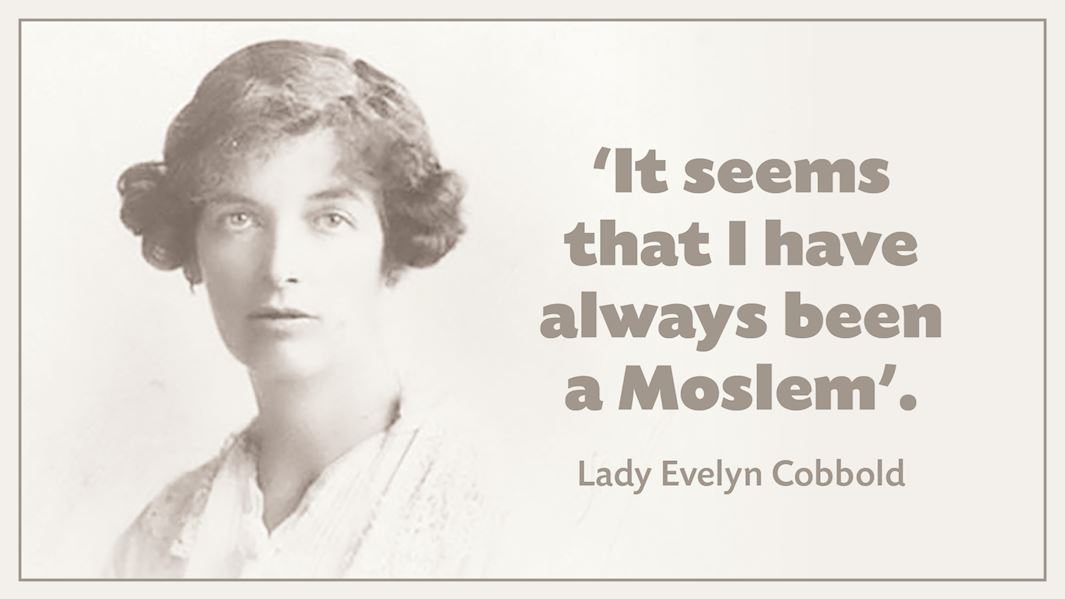
Lady Evelyn published an account of these travels in 1912. The first chapter begins with 'Bismillah al-Rahman al-Rahim', inscribed most likely in her own handwriting, and she probably considered herself to be a Muslim at this time, though we don't know if she had 'officially' embraced Islam. Towards the end of her book, she wrote, 'To the Arab his religion is a living thing, ever present in his daily life; a power to console in sorrow, a faith enabling him to face trouble with resignation, death without flinching. Truly is Islam a powerful and great force'.
Later, in her book Pilgrimage to Mecca, Lady Evelyn wrote that, 'I do not know the precise moment when Islam dawned on me. It seems that I have always been a Moslem'.
Lady Evelyn performed the Hajj in her mid-sixties, ma sha Allah, and she maintained a detailed diary the whole time, which makes her book Pilgrimage to Mecca meticulous and eloquent. Her book was positively reviewed in leading British newspapers at the time, including the Sunday Times and the Manchester Guardian, making her an ambassador for Islam in early 20th-century Britain. We pray Allah accepted her Hajj and her efforts, amin!
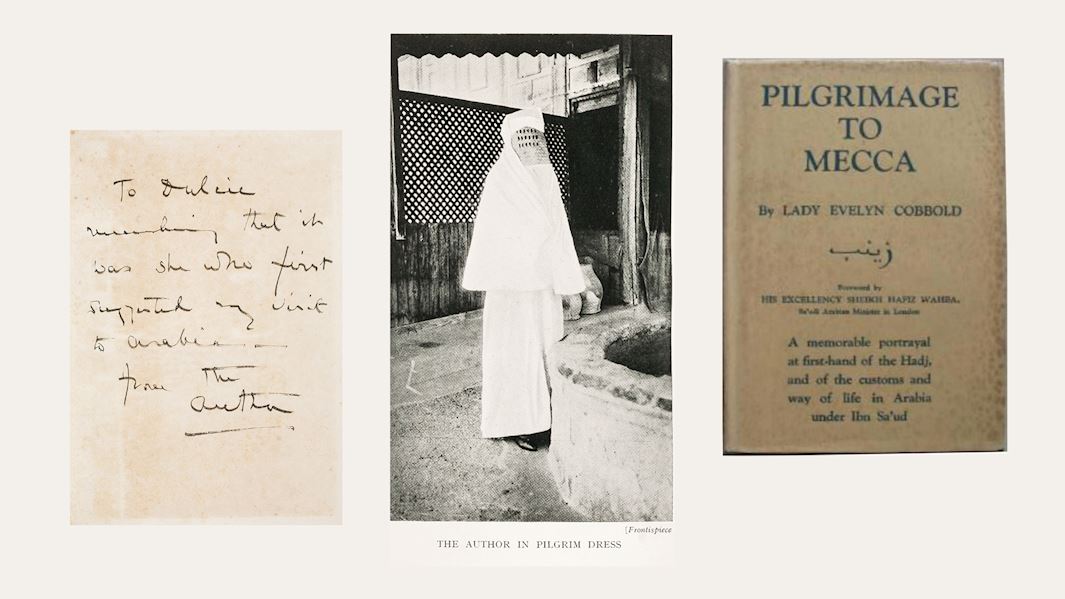
1360 AH: Muhammad Ali was born
The African-American boxer Muhammad Ali was born on 29th Dhul-Hijjah (17th January 1942). Born Cassius Marcellus Clay Junior in the State of Kentucky, he would later become an Olympic gold-medallist, changing his name to Muhammad Ali in 1964 after being encouraged to do so by Elijah Muhammad and Malcolm X of the Nation of Islam.
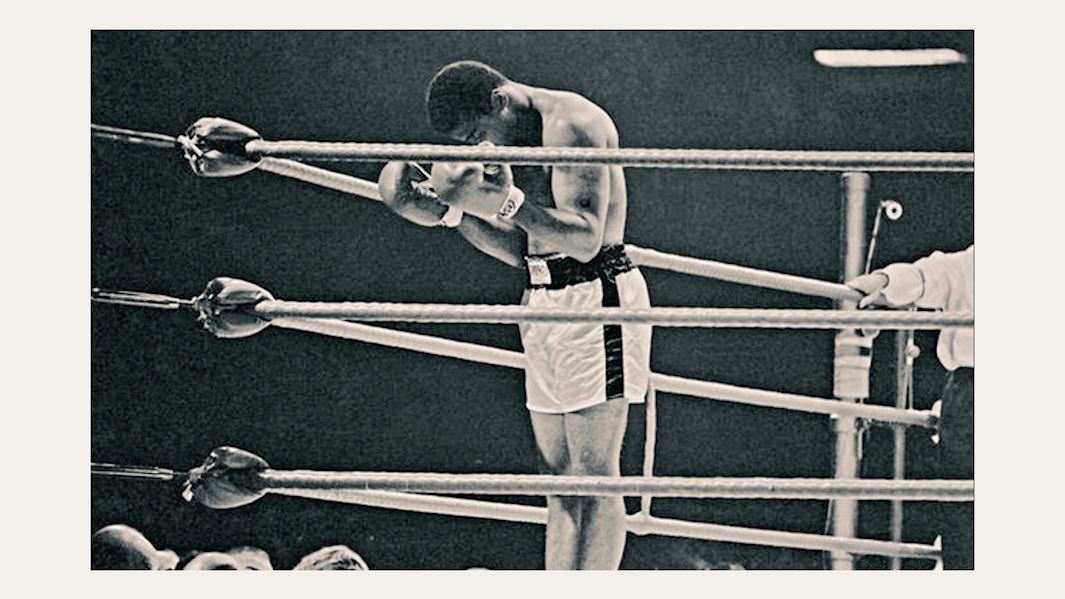
Publicly changing his name was only one of the ways Muhammad Ali showed his deep conviction:
- In 1967, he refused to sign up for military duties in Vietnam on the grounds of being a conscientious objector, famously saying, 'Keep asking me, no matter how long. On the war in Vietnam, I sing this song. I ain't got no quarrel with the Viet Cong'. An all-white jury found him guilty of draft evasion and he was fined $10,000 and sentenced to five years in prison. (He was freed on appeal, but stripped of his boxing license and World Boxing Association title).
- In 2002, he was presented with a star on the Hollywood Walk of Fame, but he asked that his star be placed on the wall instead of the floor, saying:
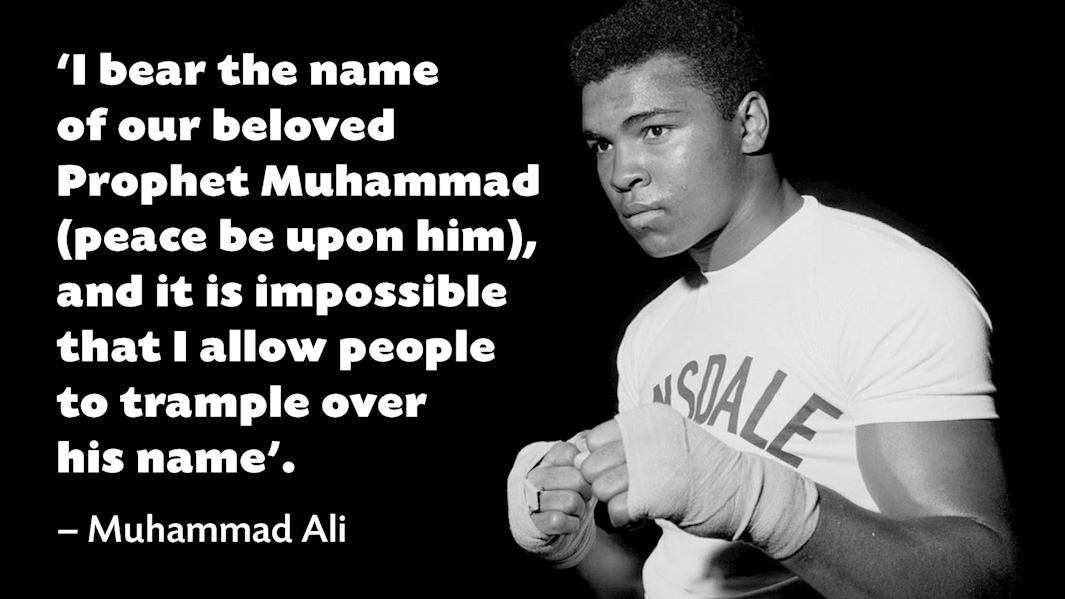
- One of his most famous sayings is 'I am the greatest' which he shouted at reporters before stepping into the ring in 1964 - and, as an African-American man competing in a country rooted in white supremacy, these were words both powerful and empowering. But he later commented on his Parkinson's Disease, 'God gave me this illness to remind me that I'm not Number One - he is', showing that he possessed humility as well as confidence.
Muhammad Ali passed away in June 2016, but he remains an inspiration and a role model to this day, for Muslims, African-Americans and many other people.
1383 AH: Malcolm X went on Hajj
In April 1964, Malcolm X set out for Hajj, on a journey which would transform his thinking and his work as an African-American civil rights activist.
Right from the airport, Malcolm X was beginning to get an inkling of the incredible nature of Hajj. 'Every one of the thousands at the airport, about to leave for Jedda, was dressed this way', he wrote in his autobiography. 'You could be a king or a peasant and no one would know'.
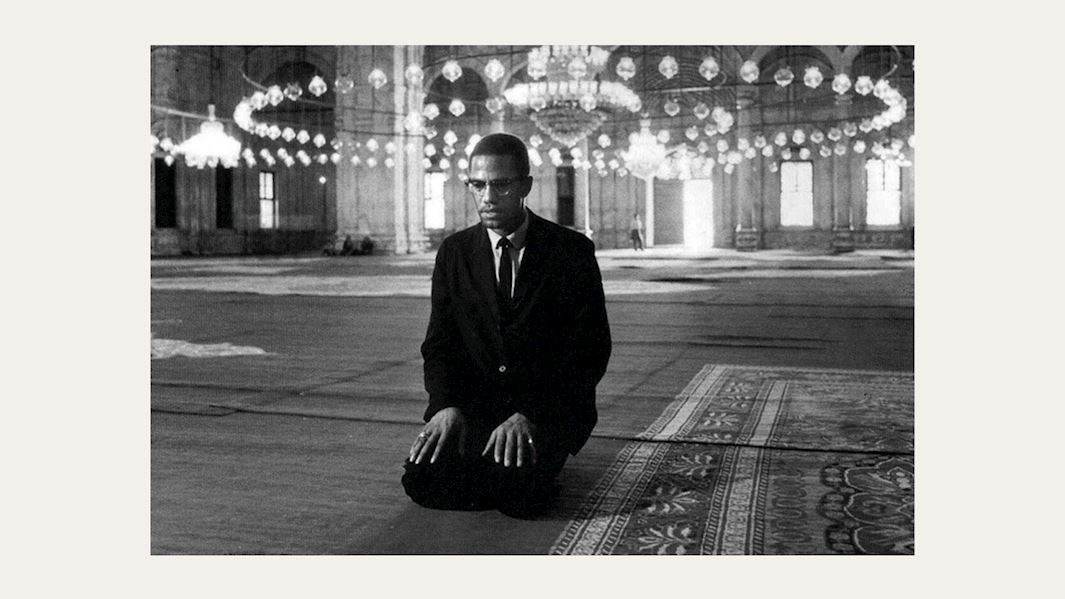
As his journey went on, he was stunned by the way a black man was being honoured and welcomed at every stage. On the plane, 'the word was spreading from seat to seat that I was a Muslim from America. Faces turned, smiling towards me in greeting… The captain of the plane came back to meet me'.
Because of the rarity of an American Muslim going on Hajj, Malcolm X could not proceed from the airport straight away; instead, he had to go before the Mahgama Sharia, a court to determine that he was an authentic Muslim, not a non-Muslim attempting to enter Makkah! Eventually, he called the friend of a friend in Jeddah and was able to leave the airport.
The abundant hospitality of this white-complexioned acquaintance stunned him and he later wrote, 'That morning was when I first began to reappraise the "white man"… In America, "white man" meant specific attitudes and actions toward the black man, and toward all other non-white men. But in the Muslim world, I had seen that men with white complexions were more genuinely brotherly than anyone else had ever been. That morning was the start of a radical alteration in my whole outlook about "white" men'.
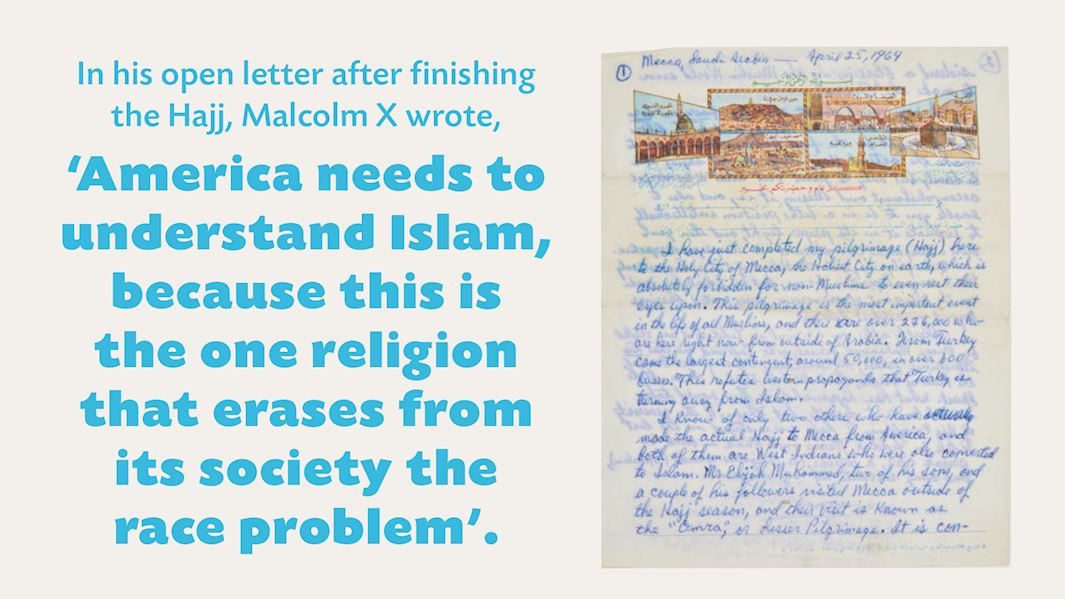
'During the past eleven days here in the Muslim world, I have eaten from the same plate, drunk from the same glass, and slept in the same bed (or on the same rug) - while praying to the same God - with fellow Muslims, whose eyes were the bluest of blue, whose hair was the blondest of blond, and whose skin was the whitest of white. And in the words and in the actions and in the deeds of the "white" Muslims, I felt the same sincerity that I felt among the black African Muslims of Nigeria, Sudan and Ghana'.
He later said in a speech to the press, 'In the past, yes, I have made sweeping indictments of all white people. I never will be guilty of that again - as I know now that some white people are truly sincere, that some truly are capable of being brotherly toward a black man'.
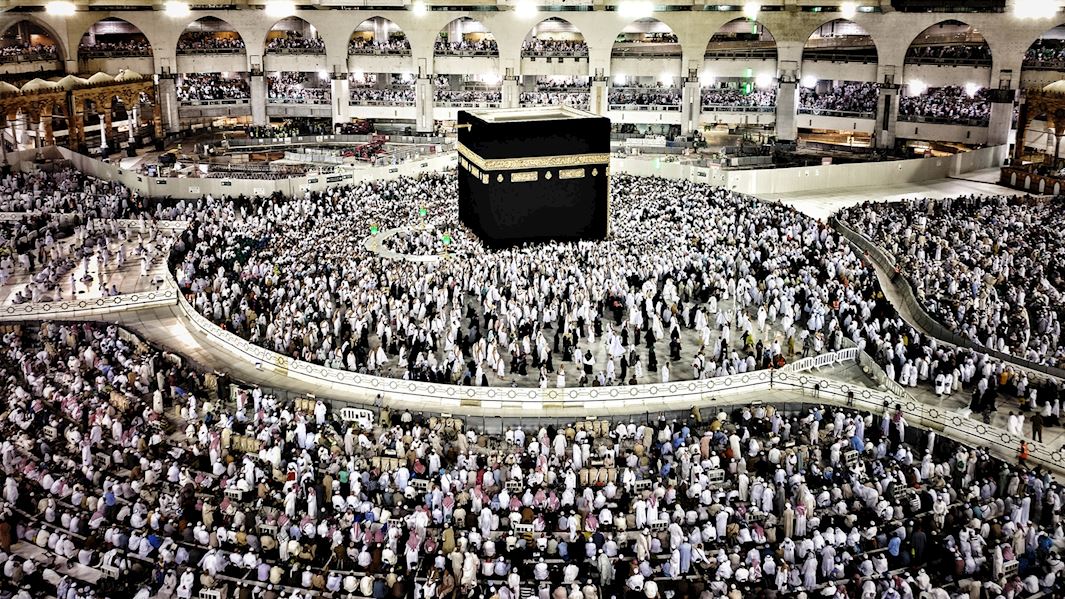
SubhanAllah, it is truly amazing to see that Malcolm X had learned the true spirit of Islam from his Hajj - of one humankind worshipping One God, all of them equal except in piety. It was the same message that the Prophet (saw) had conveyed in his Farewell Sermon almost 1,400 years earlier.
Malcolm X was a controversial figure but, to this day, he remains an inspiration to Muslims, African-Americans and many more - as an intellectual, an activist and a person of principle. He never hesitated to publicly admit a mistake in his thinking and change his mind; in fact, his perspective after performing Hajj was a 180-degree turnabout to his former point of view, but he announced it to the press immediately. We can all learn from this honesty, sincerity, courage and humility!
1417 AH: A deadly fire swept through Mina
On 15th April 1997, or 7th Dhul-Hijjah, fires driven by high winds tore through Mina during Hajj, trapping and killing more than 340 pilgrims. 1,500 people were also injured. [The Guardian]
Although Hajj has gotten much safer in recent years, there were still many such incidents in the late 20th and early 21st centuries every Dhul-Hijjah, both due to overcrowding and mass accidents.

In 1990, for example, a failure in the ventilation systems caused a stampede in a tunnel in Mina, killing over 1,400 pilgrims. In 2006, an eight-storey hostel near the Grand Mosque collapsed, killing 73 people. As recently as 2015, over 300 people were killed in a stampede in Mina and hundreds more injured.
In the last two years, the worldwide pandemic has reminded us all of our fragility, mortality and dependence on Allah, and similarly, these tragic incidents from the annual Hajj remind us that we never know what is going to happen. These pilgrims had travelled all the way to Makkah to fulfil an obligation, many of them saving up for years to do so, and they passed away in unpredictable mass accidents. We pray Allah eases the sorrow of all their families and accepts their Hajj, amin.
1441 AH: A global Hajj was cancelled due to coronavirus
In 2020, no overseas visitors were allowed to perform Hajj, in order to contain the spread of COVID-19. Instead, about 1,000 pilgrims residing in Saudi Arabia performed Hajj, none of whom were over 65 or had a chronic illness. Pilgrims were tested for coronavirus before entering Makkah and were required to wear a face mask at all times and remain socially distanced. Touching or kissing the Ka'bah was also banned.
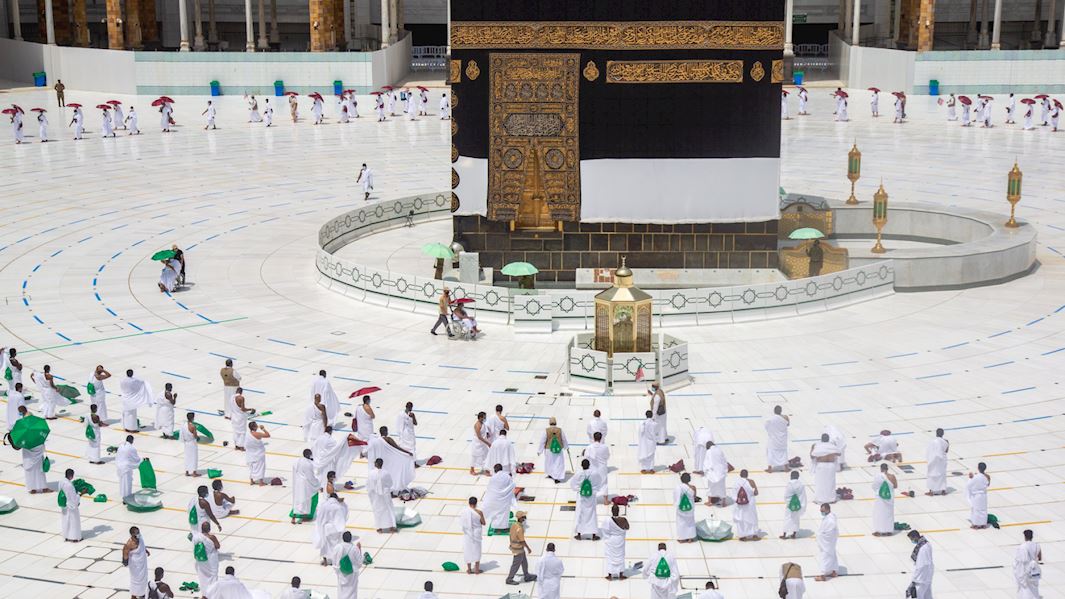
As we have seen, Hajj has been cancelled several times throughout history, but 2020 was the first time it had been cancelled in almost a century. It was both an immense disappointment to people who had been preparing for this once-in-a-lifetime journey, and a relief that the pandemic was being taken seriously. Ultimately, Muslims worldwide accepted it as qadr from Allah.
In 2021, Hajj was scaled back once again, with 60,000 pilgrims permitted to enter Makkah. However, no one from the UK was able to go. In 2022, even more pilgrims were able to attend, however, nobody above the age of 65 was allowed to attend for safety reasons.
We pray Allah accepts the Hajj and du'as of everyone who makes it to His House - and we pray that He grants us the opportunity to perform Hajj one day, amin!
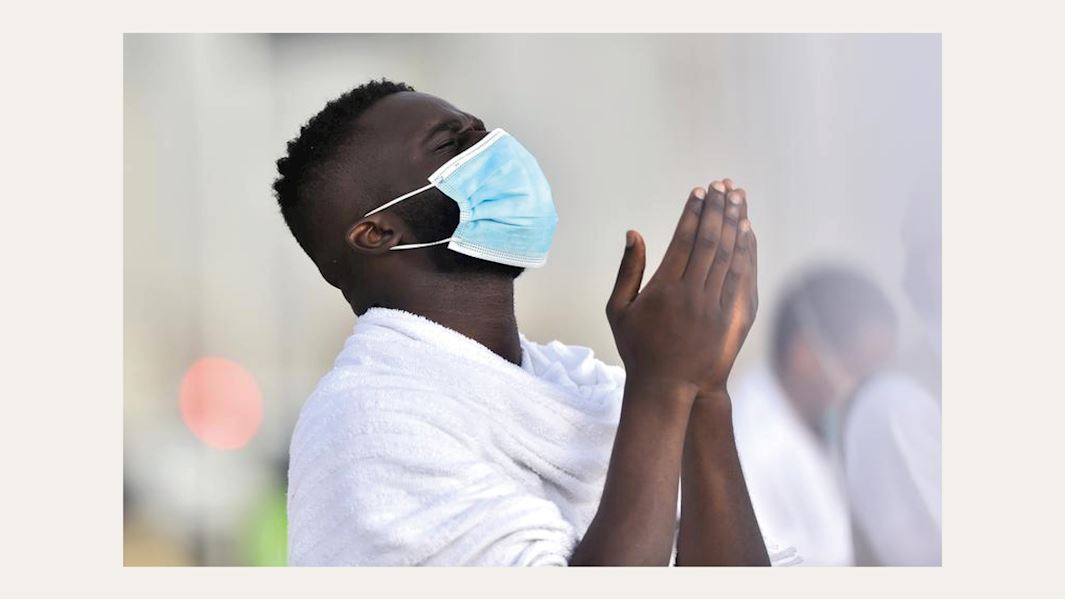
Conclusion
SubhanAllah, so many transformational events occurred during Dhul-Hijjah in the 20th and 21st centuries. From the changes to the Black Civil Rights Movement in America to the worldwide cancellation of the annual Hajj, we can definitely not forget these significant moments in modern history.
If you can't perform Hajj this year, there are many actions which carry a similar reward to Hajj - so check out our previous article to maximise your rewards!
Before you go, here are three things you NEED to do this Dhul-Hijjah:
- Read our article about The Benefits of the First Ten Days of Dhul-Hijjah, to learn essential Sunnah tips.
- Automate your donations with The Best 10 Days, so you don't miss giving charity during the first ten days of Dhul-Hijjah.
- Order your Qurbani before Eid al-Adha on 16th June 2024. (We offer Qurbani from £35 in 26 locations, including Pakistan, Yemen and Afghanistan).
Muslim Hands is an award-winning charity, established in 1993 to provide emergency relief and tackle the root causes of poverty. We hope this article was useful to you - please share with friends and family, so they can benefit as well!





